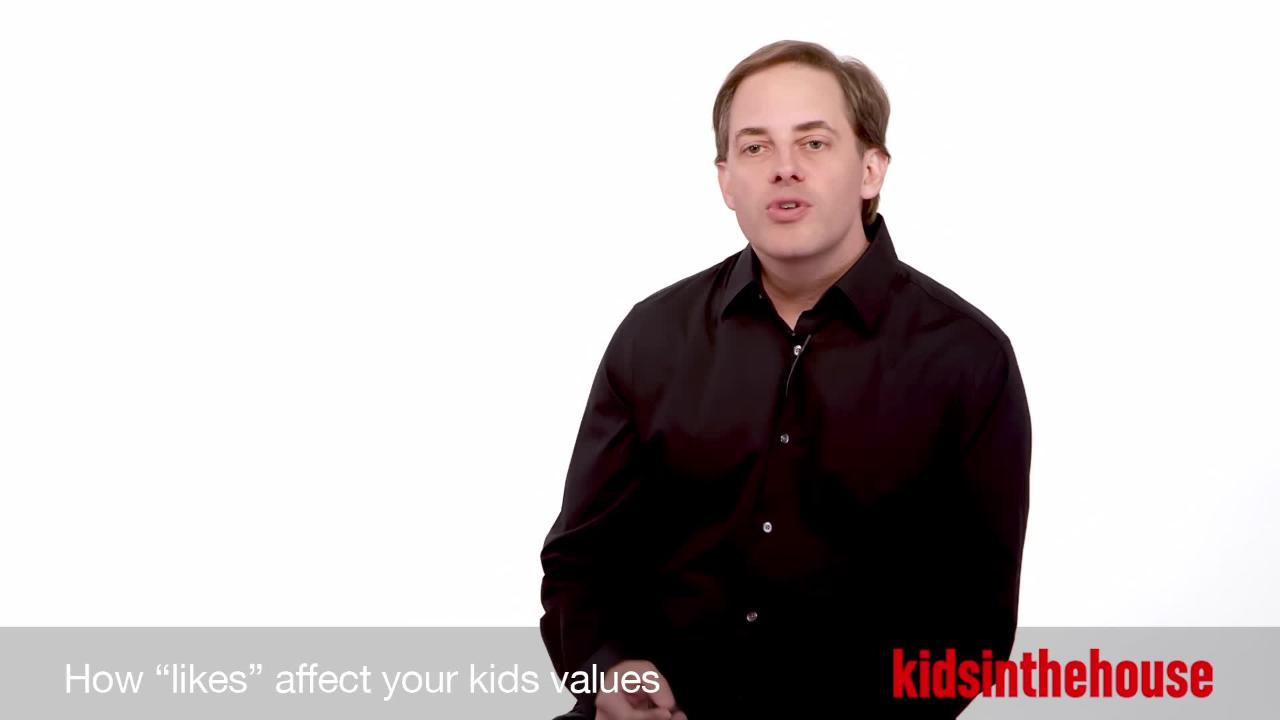How likes affect your kids values.
- We need to be careful about our kids on social media, especially now in a world where they are constantly being exposed to different kinds of images that have likes attached to them. There's been some research done to look at what happens in kids' brains while they're on social media by having kids in an FMRI machine, and what they find is when you show kids pictures of things that they commonly see online, things that are dangerous, immoral, or illegal, there's a part of their brain, in the front, the prefrontal cortex, that tells them they should stop and inhibit any desires that they have. That's good news, but when you show them these same pictures and you attach to it images that say that these images have been liked or retweeted or followed, the research shows that that prefrontal cortex activation goes away. So in other words, simply seeing a dangerous, a picture of a dangerous act associated with many likes makes kids not feel that they should be as inhibited and it might be changing their values, so what they see online actually makes them more interested in engaging in those immoral or dangerous behaviors.
Mitch Prinstein talks about our kids on social media, and dangers of the world where they are constantly being exposed to different kinds of images that have likes attached to them.
Related Videos
Transcript
Expert Bio
More from Expert
Mitch Prinstein, Ph.DProfessor of Psychology and Neuroscience
Mitch Prinstein, Ph.D. is a husband, a father, board certified in clinical child and adolescent psychology, and serves as the John Van Seters Distinguished Professor of Psychology and Neuroscience, and the Director of Clinical Psychology at the University of North Carolina at Chapel Hill.Mitch’s Peer Relations Lab has been conducting research on popularity and peer relations for almost 20 years, and has been funded by the National Institute of Mental Health, the National Institute of Child and Human Development, and several private foundations, resulting in over 100 scientific works, including a slew of scientific journal articles, book chapters, a set of encyclopedias on adolescent development, and even a textbook on the field of clinical psychology.Mitch is deeply committed to science and training in clinical psychology, having served as President of the Society for a Science of Clinical Psychology and the Society of Clinical Child and Adolescent Psychology, the Editor-in-Chief of the Journal of Clinical Child and Adolescent Psychology, and on the boards of the American Psychological Association, the Council of University Directors of Clinical Psychology, and publication board of the Association of Behavioral and Cognitive Therapies.He and his research have been featured in The New York Times, The Wall Street Journal, National Public Radio, the Los Angeles Times, CNN, U.S. News & World Report, Time magazine, New York magazine, Newsweek, Reuters, Family Circle, Real Simple, and elsewhere.




 GET ACCESS TO ALL PREMIUM CONTENT WITH NO ADS FOR $4.99/MONTH
GET ACCESS TO ALL PREMIUM CONTENT WITH NO ADS FOR $4.99/MONTH
Login or Register to view and post comments